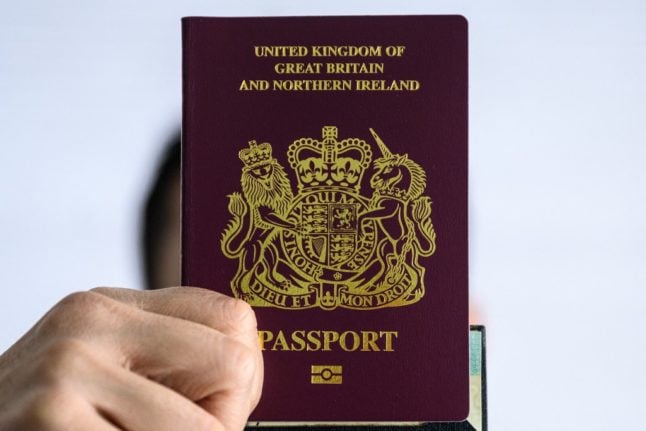Britons living across the EU have long been concerned about the knock-on effect of their passport being wrongly stamped when travelling in and out of the Schengen zone.
While British officials at embassies across Europe have repeatedly stressed the passports of those Britons protected by the Brexit deal should not be stamped, those instructions appear not to have filtered through to border guards.
The erroneous stamps have left many passport holders resident in the EU worrying about being accused of overstaying the 90-day limit in their host country.
This week the EU Commission has stressed that passports should not be stamped, but reassured Britons that if they are there will be no negative consequences.
“The Commission recommends – notably as regards beneficiaries of the Withdrawal Agreement – that Member State border guards refrain from stamping. In any case, should stamping nevertheless take place, such stamp cannot affect the length of the authorised long-term stay,” read their latest guidance.
“EU law does not prevent border guards from stamping upon entry to and exit from the Schengen area of travel documents of United Kingdom nationals who are beneficiaries of the Withdrawal Agreement who are in possession of a valid residence permit issued by a Schengen Member State. The same applies to their family members in the same situation.”
The Commission added that the usual limitation of a stay of 90 days in a 180 days’ period in the Schengen area does not apply to Britons covered by the Withdrawal Agreement “irrespective of whether their passport has been stamped or not”.
But it reminded Britons that they only have the right to stay in their country of residence. If they travel within the Schengen area to another EU country they are subject to the 90 day rule.
It recommended Britons “proactively present” their post-Brexit residency cards – if they have one – at the border to prove their status. However not all Britons in the EU have post-Brexit residency cards because they are only compulsory in certain countries.
Britons in countries such as Spain and Italy, where the cards are not obligatory but available, are urged to apply as soon as possible.
Those who don’t have the cards are told to use any documentation “that credibly proves that the holders exercised the right to move and reside freely in the host Member State before the end of the transition period and continue to reside there.”
“Documents indicating the address of the person can show continued residence after the end of the transition period. “



 Please whitelist us to continue reading.
Please whitelist us to continue reading.
It would be useful if the article contained a link to the original document
This is a useful article! Do you have a link to the Commission’s communication?
[Slight correction to the title: WA beneficiaries are not only British]
So what is a ‘post-Brexit residency card’ in, say, Spain? Is it the TIE or NIE? What if one does not wish to be a resident there but needs the ‘padron’, e.g. to register for local Town Hall services?
Does the ‘padron’ imply residency? Hopefully not, but a lot of this in EU countries (such as Spain) seems a complete muddle!
I applied for my post Brexit residency card (carta di soggiorno elettronica) here in Italy over 5 months ago and have heard or received nothing back yet. On a couple of occasions when I have asked border control not to stamp my passport, or struggled to stop them in time, they have got annoyed and said that they would stamp irrespective.